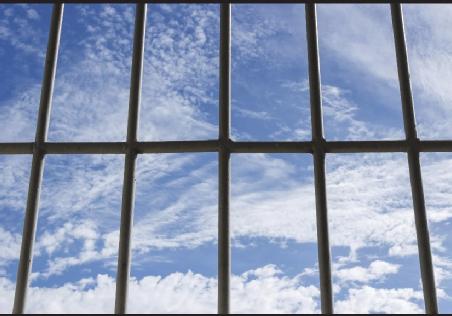Warwick Law School News
Warwick Law School News
The latest updates from our department
Prisoner Disenfranchisement: a hollow victory for human rights?
A 12-year stand-off came to an end this week when a British compromise offer to extend the franchise in very limited circumstances was accepted by the Council of Europe. Why has this issue been so controversial and why has it taken the UK 12 years to finally fall into line? Warwick Law School Professor Jacqueline Hodgson comments:
 "For more than a decade, the UK has continued to breach the European Convention on Human Rights by refusing to allow any convicted prisoners the right to vote, directly contravening the European Court of Human Rights’ ruling in the case of Hirst v UK.
"For more than a decade, the UK has continued to breach the European Convention on Human Rights by refusing to allow any convicted prisoners the right to vote, directly contravening the European Court of Human Rights’ ruling in the case of Hirst v UK.
"The UK’s growing hostility to all forms of European supranational authority, including the European Court of Human Rights, together with the Council of Europe’s concern to ensure Britain’s continued membership, has resulted in a game of political brinksmanship. Following the decision in Hirst, Parliament refused to legislate to ensure compliance with the ECHR, showing a lack of respect and even disdain for Convention obligations. The Council of Europe continued to enquire as to progress on reform, expressing ‘profound regret’ at the lack of progress; and the UK continued to claim that implementation of the judgment was ‘under active consideration’.
"Most European countries allow prisoners to vote, seeing political participation as an important part of citizenship, promoting rehabilitation. Those that restrict prisoner voting do so on the basis of the gravity of the offence or sentence, or because the offence is aimed at undermining the democratic functioning of the state in some way.
"The UK does not permit any convicted prisoner to vote, irrespective of the offence or the sentence imposed: disenfranchisement is general and automatic and so has been held to be arbitrary and disproportionate. The UK claimed that disenfranchisement promotes, rather than undermines, civic responsibility. Offending of the level of gravity that attracts a prison sentence amounts to a breach of the social contract and a loss of moral authority to participate in the democratic process. Prisoners have, of course, broken a bond with their community, but that is why they are being punished. As the Canadian court noted when dealing with this issue in the case of Sauvé, it does not follow that they will then lose all rights – if the right to vote, why not also the right to freedom of expression or religion?
"Secondly, the UK government claimed that disenfranchisement is part of the punishment of offenders. Yet, it fulfils none of the rationales for criminal punishment – rehabilitation, incapacitation or deterrence. These same arguments were made by the Canadian government in Sauvé and were rejected by the Canadian court as too vague, rhetorical and symbolic. However, in Hirst, the European Court of Human Rights focused only on how to ensure that any disenfranchisement is proportionate, without considering the logically prior question of whether it is ever legitimate to deny any prisoner the right to vote. This effectively got the UK off the hook – provided it allowed some prisoners the vote, for whatever reason, it would not be acting disproportionately.
 "And so, finally we have yesterday’s decision – not to allow the vote to those serving less than four years’ imprisonment, one year, or even six months. But, of the more than 75,000 prisoners serving a sentence, around 100 (those on temporary licence) will now enjoy the right to vote, should there be an election during the period of their sentence. Although extremely modest in scope, the announcement that around 100 prisoners will now be given the right to vote has ended this stand-off and the Council of Europe has declared itself satisfied with the outcome."
"And so, finally we have yesterday’s decision – not to allow the vote to those serving less than four years’ imprisonment, one year, or even six months. But, of the more than 75,000 prisoners serving a sentence, around 100 (those on temporary licence) will now enjoy the right to vote, should there be an election during the period of their sentence. Although extremely modest in scope, the announcement that around 100 prisoners will now be given the right to vote has ended this stand-off and the Council of Europe has declared itself satisfied with the outcome."
References: Hodgson, J. and Roach, K. (2017) “Disenfranchisement as Punishment: European Court of Human Rights, UK and Canadian Responses to Prisoner Voting” 3 Public Law 450-468
